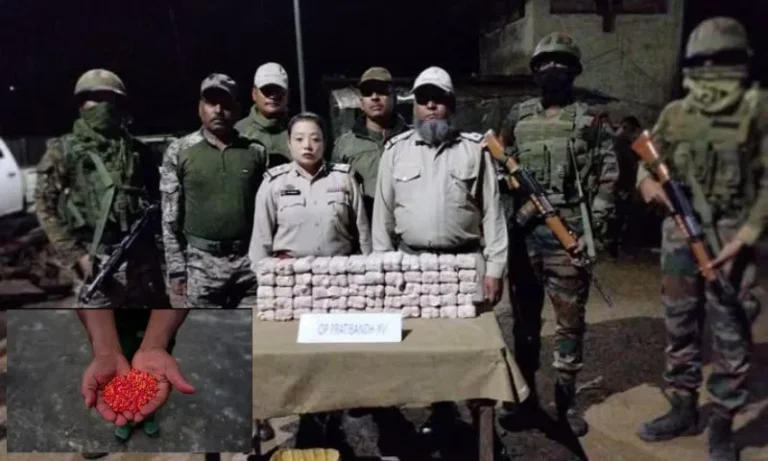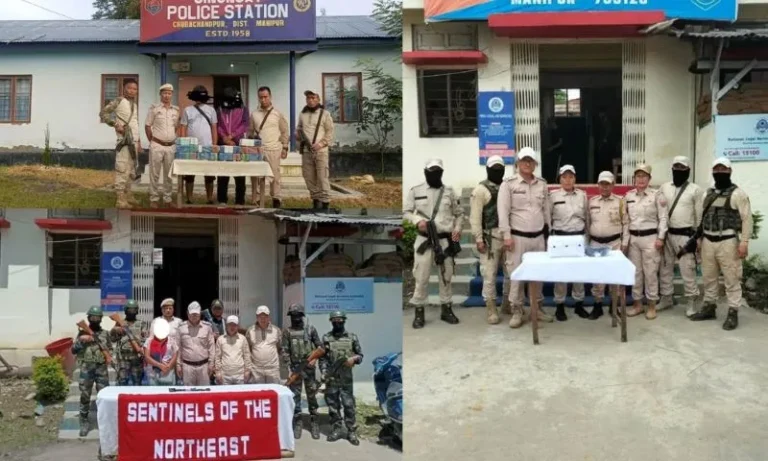Assam Government Sanctions ₹175 Crore for Free Drugs and Consumables
In a significant move to bolster public healthcare, the Assam government has approved a budget of ₹175 crore under the Jan Arogya scheme for the procurement of essential drugs and surgical supplies. This initiative aims to provide free medical assistance to various healthcare facilities in the state, including Medical College Hospitals, the State Cancer Institute, and Tea Garden Hospitals.
Overview of the Funding Initiative
On October 27, 2024, the Assam government announced this allocation to ensure that crucial healthcare services are accessible to all citizens. With the state grappling with various health challenges, this financial injection aims to ease the burden on families who struggle to afford necessary medications and surgical consumables. It’s a proactive step toward making healthcare more inclusive, especially for those in underserved areas.
Key Aspects of the Scheme
- Free Provision of Essentials: The scheme will cover essential drugs, surgical items, and consumables, meaning that patients at the designated facilities will not need to bear any costs for these necessities. This is especially important for low-income families who may otherwise avoid seeking medical help due to financial constraints.
- Targeted Facilities: The initiative will benefit a range of facilities, including:
- All Medical College Hospitals in Assam
- Super-specialty treatments at 12 Medical Colleges
- The State Cancer Institute
- The Regional Dental College
- Hospitals located in tea garden areas
This wide coverage ensures that many segments of the population will benefit, promoting better health outcomes statewide.
Support for Cultural Heritage
In addition to the healthcare funding, the Assam Cabinet also discussed cultural initiatives. The government announced financial assistance of ₹225,000 for Raas Committees to support nearly 2,000 live Raas festivals across the state, further emphasizing the government’s commitment to preserving and promoting cultural heritage. However, it’s worth noting that festivals organized with idols will not qualify for this support.
Waiver of Fees
Another positive aspect of this initiative is the waiver of fees for organizing Raas Mahotsavs. This move aims to encourage community engagement and participation in cultural events without the burden of financial constraints. By eliminating these fees, the government hopes to foster a greater sense of community and cultural identity among the people.
The Importance of Accessible Healthcare
Healthcare is a fundamental human right, and the Assam government’s latest initiative is a step toward making this right a reality for many. Let’s delve deeper into the implications of such funding and what it means for the citizens of Assam.
1. Addressing Health Disparities
In many regions, healthcare access is often limited by economic factors. By providing free drugs and consumables, the government is working to bridge the gap between different socio-economic groups. This move acknowledges the reality that healthcare should not be a privilege for the wealthy but a right for everyone.
2. Enhancing Quality of Care
By ensuring that medical facilities are well-stocked with necessary supplies, the quality of care patients receive can significantly improve. Health professionals can focus on treatment rather than worrying about the availability of essential supplies. This, in turn, can lead to better patient outcomes and increased trust in the healthcare system.
3. Encouraging Preventive Care
When patients know they can access medications and surgical supplies without financial burden, they are more likely to seek preventive care. This could lead to earlier diagnosis and treatment of health issues, ultimately reducing the long-term costs of healthcare for the state.
4. Support for Local Healthcare Providers
This initiative not only benefits patients but also supports local healthcare providers. With guaranteed funding for essential supplies, hospitals and clinics can operate more efficiently and effectively, ensuring that they can serve their communities better.
5. Cultural and Economic Boost
By linking healthcare improvements with cultural support, the Assam government is taking a holistic approach to community well-being. Healthy populations contribute to vibrant cultural festivals, which can also boost local economies through tourism and cultural activities.
Future Implications and Considerations
While this funding is a promising step forward, it’s essential to consider how it will be implemented. Transparency in procurement processes, efficient distribution of supplies, and monitoring the utilization of funds will be crucial in ensuring the success of this initiative.
Engaging Communities
Engaging with local communities is vital to understand their needs and challenges better. Feedback mechanisms should be established to gather insights from the public and healthcare providers. This two-way communication can help the government fine-tune its approach and ensure that the services provided are genuinely meeting the needs of the people.
Sustainability of the Initiative
Sustaining this funding over the long term will be a challenge. It’s crucial for the Assam government to develop a sustainable financial model that allows for continued support of free healthcare initiatives. This might include partnerships with NGOs, private sectors, and international health organizations.
Addressing Underlying Health Issues
While providing free drugs is essential, it is also critical to address the underlying health issues that lead to high demand for these services. Public health campaigns focused on preventive measures, healthy lifestyles, and education about diseases could further enhance the health of the population.
Conclusion
The Assam government’s sanction of ₹175 crore for free drugs and consumables marks a significant step towards improving public health in the state. This initiative not only ensures that essential healthcare supplies are available to those in need but also fosters a sense of community and cultural pride through support for local festivals. By combining healthcare with cultural initiatives, the Assam government demonstrates a holistic approach to community well-being that could serve as a model for other regions.
As we look forward, it will be crucial for the government to ensure effective implementation and sustainability of these initiatives, continuing to engage with communities and addressing both health and cultural needs.
FAQs
1. What is the Jan Arogya scheme?
The Jan Arogya scheme is an initiative by the Assam government aimed at providing essential drugs, surgical items, and consumables free of charge to various healthcare facilities.
2. How much funding has been sanctioned for this initiative?
The Assam government has sanctioned ₹175 crore for the procurement of necessary healthcare supplies under the Jan Arogya scheme.
3. Which healthcare facilities will benefit from this funding?
The funding will benefit all Medical College Hospitals, the State Cancer Institute, the Regional Dental College, and Tea Garden Hospitals in Assam.
4. Are there any cultural initiatives linked to this funding?
Yes, the Assam government also announced financial assistance for Raas Committees to support cultural festivals, promoting community engagement.
5. How can the success of this initiative be ensured?
Ensuring transparency in fund allocation, engaging with local communities for feedback, and addressing underlying health issues are crucial for the initiative’s success.




